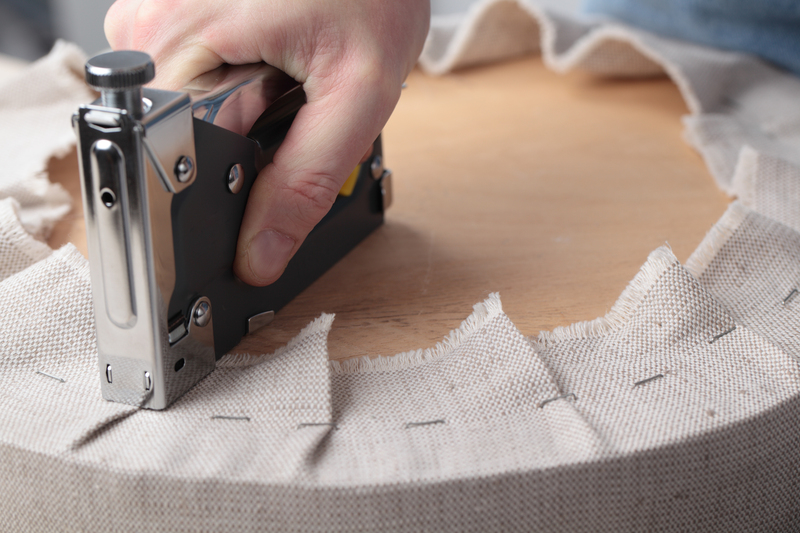Creative Ways for Disposing and Recycling Old Pots and Pans
Is your cupboard overflowing with battered saucepans, scratched skillets, and once-loved cookware that's now collecting dust? Knowing what to do with old pots and pans can be challenging, especially if you're environmentally conscious. This comprehensive guide delves into innovative methods for the ethical disposal and creative recycling of old cookware, turning what seems like waste into valuable resources.
Why Proper Disposal and Recycling of Cookware Matters
Before tossing your kitchenware in the trash, it's essential to consider the impact of improper disposal. Most pots and pans are made from metals, nonstick coatings, plastics, and composite materials. If left in landfills, these materials can take hundreds of years to break down and may leach harmful substances. By finding creative ways to recycle and repurpose old pots and pans, you not only clear up space at home but also contribute to a more sustainable planet.

How to Determine if Your Pots and Pans Can Be Recycled or Donated
- Material Check: Most cookware is stainless steel, aluminum, copper, or cast iron. These metals are often recyclable, but nonstick coatings and plastic handles may need special consideration.
- Condition Assessment: Are your pots and pans merely scratched, or are they warped and unusable? Items with minor wear and tear may still serve others.
- Local Recycling Rules: Recycling programs vary widely. Contact your local recycling center or municipality for specific cookware disposal guidelines.
Eco-Friendly Options for Disposing and Recycling Old Pots and Pans
1. Donate Usable Cookware to Charities
If your pots and pans are still functional, one of the best ways to extend their life is donation. Consider these options:
- Thrift Stores: Many second-hand shops like Goodwill or the Salvation Army accept gently used kitchen items.
- Homeless Shelters: Organizations serving those in need often appreciate donations of functional cookware.
- Community Centers or Schools: Some programs, especially those with cooking classes, may welcome your old cookware.
Tip: Clean your pots and pans thoroughly before donating them for hygiene and presentation reasons.
2. Drop Off at Specialized Metal Recyclers
If your old pots and pans are beyond use, recycling is the next best option. Metal recyclers often accept cookware, even with plastic handles. Here's how:
- Remove as many non-metal parts (handles, lids) as possible.
- Check with local scrap yards or recycling facilities to confirm they accept the type of metal.
- Some nationwide programs, like those at hardware stores, periodically host recycling events for kitchenware.
3. Use Curbside Recycling -- With Caution
Some areas allow you to place old cookware in your curbside recycling bin. However, this function varies:
- Confirm with your municipality that your pans' metal (stainless steel, aluminum, cast iron) is accepted.
- Wrap sharp edges to protect collection workers.
- Never include glass lids unless your recycling program specifically permits it.
4. Manufacturer Take-Back and Trade-In Programs
Did you know many leading cookware brands offer recycling or take-back programs? Some examples include:
- Calphalon: Offers a program for customers to send back used cookware for recycling.
- GreenPan: Arranges for responsible recycling of their products (check their website for details).
- Some stores offer trade-in days, where you can hand in old cookware for discounts on new products.
Creative and Artistic Ways to Repurpose Old Pots and Pans
Don't feel like parting ways with cherished kitchenware? Give them a new life around your home or garden!
1. Transform into Garden Planters
Old saucepans, skillets, or teapots make unique and durable planters for flowers or herbs. Tips for using them as planters:
- Drill holes in the bottom for drainage.
- Fill with potting mix and add vibrant plants or herbs.
- Hang from garden hooks or arrange on patios for a quirky look.
Cast iron and stainless steel resist rust and can add rustic charm to any outdoor space.
2. Upcycle as Storage Containers
Retired cookware can serve as handy storage for:
- Utensils or cutlery in the kitchen.
- Art supplies, sewing notions, or hardware in a workshop.
- Children's toys or office stationery.
Paint or decorate the outside to match your decor or add labels for easy organization.
3. Creative Wall Art and Home Decor
Old pots and pans can be turned into unique art pieces using a little creativity:
- Wall Clocks: Turn a frying pan into a clock with a battery-operated mechanism.
- Photo Frames: Attach your favorite photos inside the pan or lid, using a ribbon or magnets for hanging.
- Sculptures & Mobiles: Use wire, beads, and paint to turn pans into whimsical hanging art.
Repurposing cookware this way makes a bold statement and keeps memories alive!
4. Outdoor Wind Chimes
Combine old lids, metal handles, and even cutlery to craft melodic wind chimes:
- Drill small holes in the pieces and use strong fishing line or wire to connect them.
- Hang in a breezy spot to enjoy soothing tinkling sounds.
Kids and adults alike will enjoy this fun craft project!
5. Bird Baths and Feeders
Create a wildlife haven in your yard by turning a larger saucepan or skillet into a bird bath, or a smaller pan into a feeder:
- Stabilize the pan using stones or attach to a pedestal.
- Fill with clean water (for a bird bath) or seeds (for a feeder).
- Clean regularly to ensure the safety of your feathered visitors.
Frequently Asked Questions about Cookware Recycling and Disposal
Can you recycle nonstick pans?
Yes, but with caution. Modern nonstick coatings (usually PTFE or ceramic) can be problematic in municipal recycling because they complicate the melting process and may release fumes. Remove the nonstick coating if possible or check if your local scrap yard accepts them. Some specialist recyclers handle nonstick cookware by safely disposing of coatings before metal recycling.
What about pots and pans with plastic handles?
Pots and pans with plastic or silicone handles are often accepted by scrap metal recyclers, who can remove and separate non-metal parts. If you can, remove handles before recycling and dispose of them in the appropriate waste stream.
Do charities accept damaged cookware?
Most charities only accept cookware that is functional and safe to use. Severely damaged, warped, or cracked items should be recycled or upcycled instead of donated.
Are there hazardous materials in old cookware?
Older cookware may have coatings with toxic substances like lead or perfluorinated chemicals (PFOA). Avoid using, donating, or recycling them if uncertain about their safety, or seek advice from your local environmental agency.
Tips to Prolong the Life of New Cookware
Extending the life of your existing pots and pans is one of the best ways to reduce kitchen waste. Here's how:
- Follow Manufacturer's Care Instructions: Hand-wash when required and avoid abrasive cleaners.
- Use the Right Tools: Wooden or silicone utensils prevent scratch damage to nonstick surfaces.
- Avoid High Heat on Nonstick Pans: Extreme temperatures shorten lifespans of coatings.
- Re-season Cast Iron Regularly: Maintains a nonstick surface and prevents rust.
By caring for your cookware, you maximize its use and minimize future waste.

Choosing Environmentally Friendly Cookware
If it's time to purchase new pans, look for products with sustainable materials and responsible manufacturing practices. Some eco-friendly cookware options include:
- Ceramic-coated pans free from harmful chemicals.
- Recycled aluminum or stainless steel products.
- Brands committed to take-back or recycling programs.
Conclusion: A Sustainable Kitchen Starts with Responsible Cookware Disposal
Whether you choose to recycle old pots and pans, donate them, or turn them into DIY masterpieces, every action helps reduce landfill waste and supports a more circular economy. With these creative ways to repurpose and recycle cookware, your worn-out kitchen tools can enjoy a second life--either in someone else's kitchen, as beautiful home decor, or as useful garden items.
Let your creativity shine and inspire others to think differently about kitchenware "waste." Share your successes and ideas to grow a more sustainable community--one pot and pan at a time.
